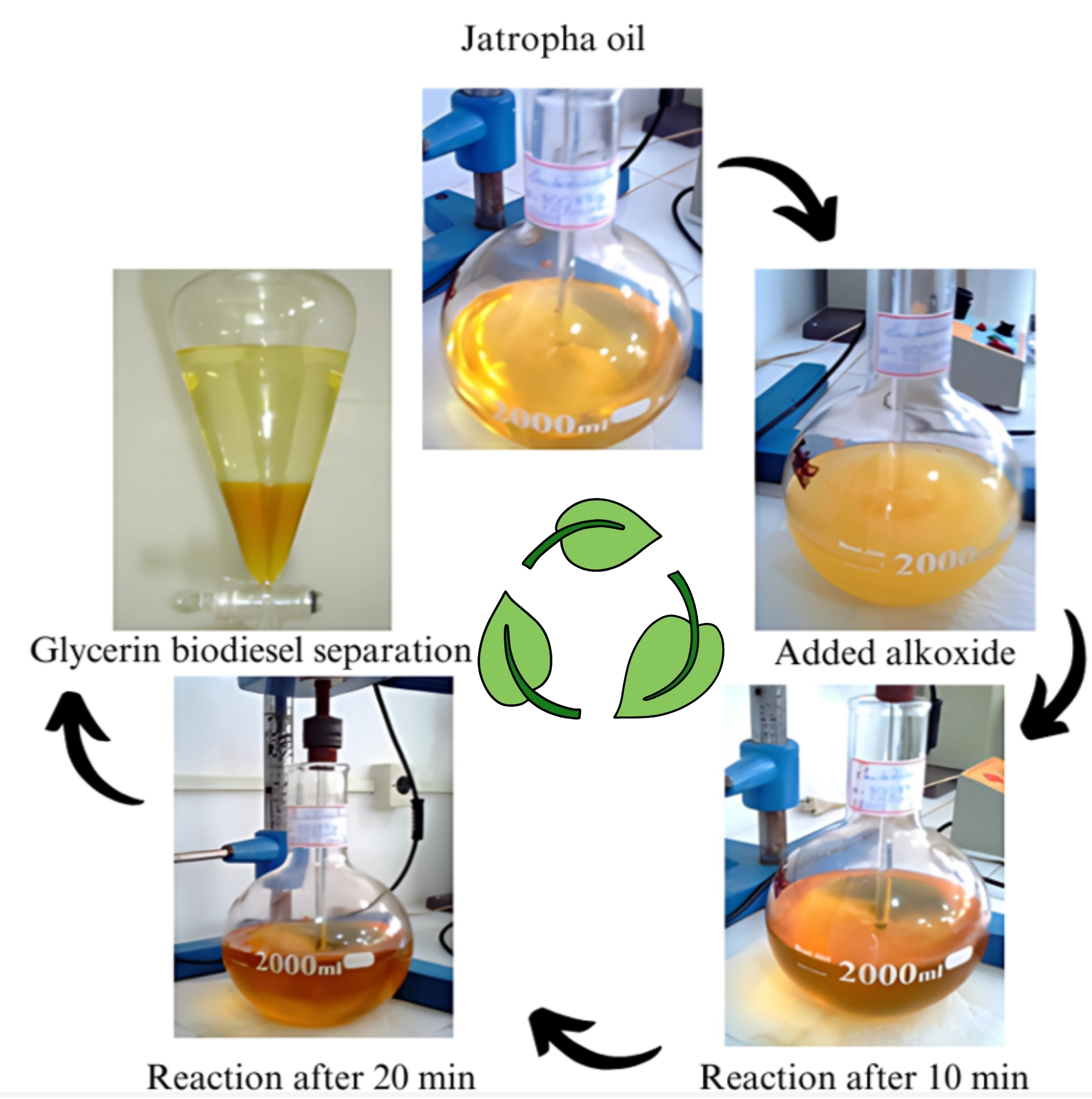
This study investigates the oxidative stability of Jatropha biodiesel and its blends with diesel over 180 days of storage. Jatropha oil was extracted using mechanical and chemical methods and then converted into biodiesel through transesterification. The biodiesel, both pure (B100) and blended at 5%, 10%, and 20% with diesel (B5, B10, B20), was stored and monitored using various analytical techniques, including UV-visible and Fourier-transform infrared spectroscopy, thermogravimetric analysis, and pressurized differential scanning calorimetry. Results showed that oxidative degradation increased progressively over the storage period, with oxidative induction time decreasing from 41.3 minutes to 7.72 minutes. The viscosity of B100 increased slightly from 4.13 to 4.92 mm²/s, indicating the formation of short-chain oxidation products. Blended biodiesel displayed improved oxidative stability compared to pure biodiesel. Despite significant oxidation, the fuel properties of the biodiesel remained within global specifications. Jatropha biodiesel shows promise as a sustainable fuel alternative, though its oxidative stability requires improvement, potentially through the use of antioxidants, for long-term storage and commercial viability.
Total file downloads: 10